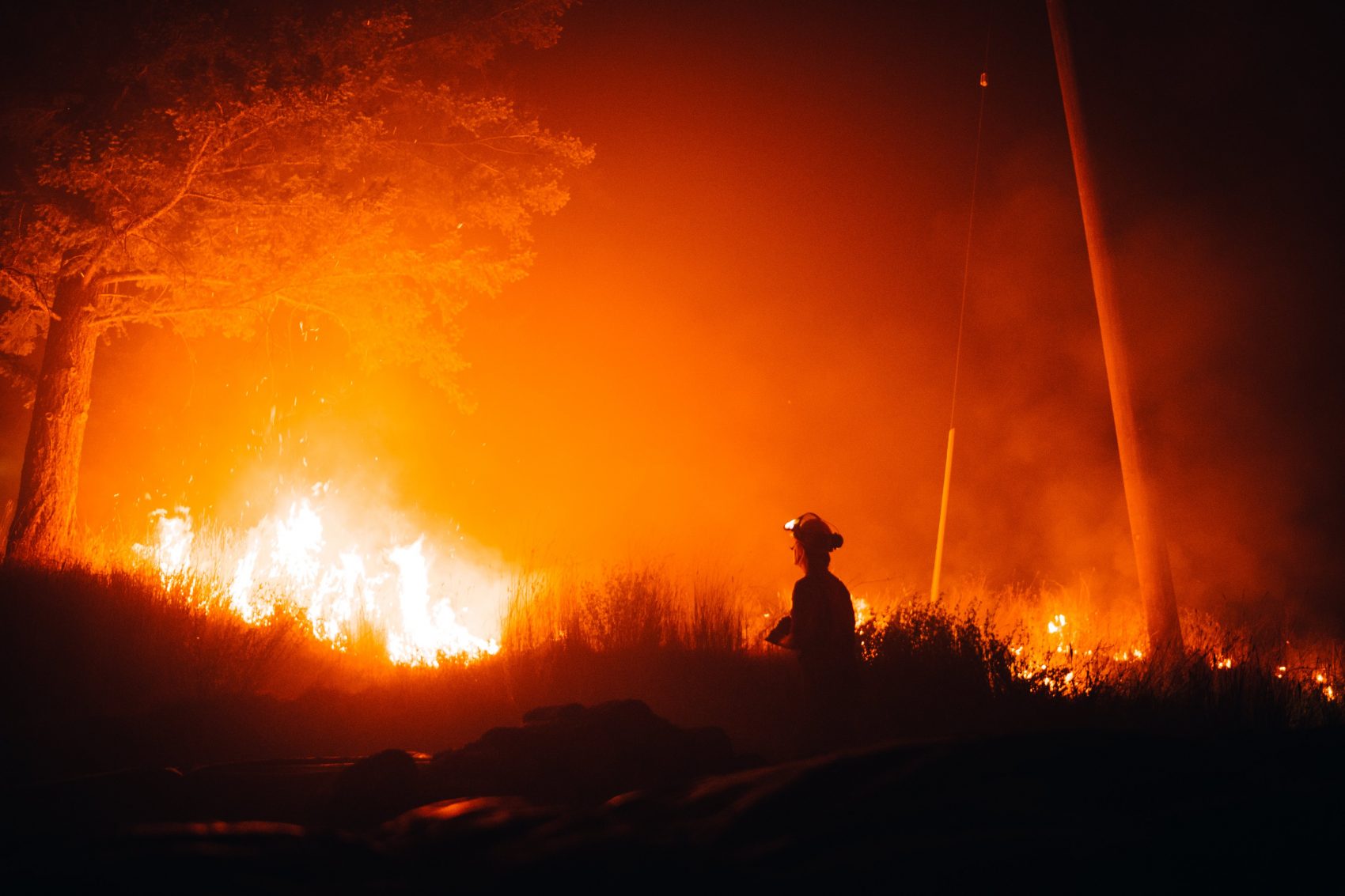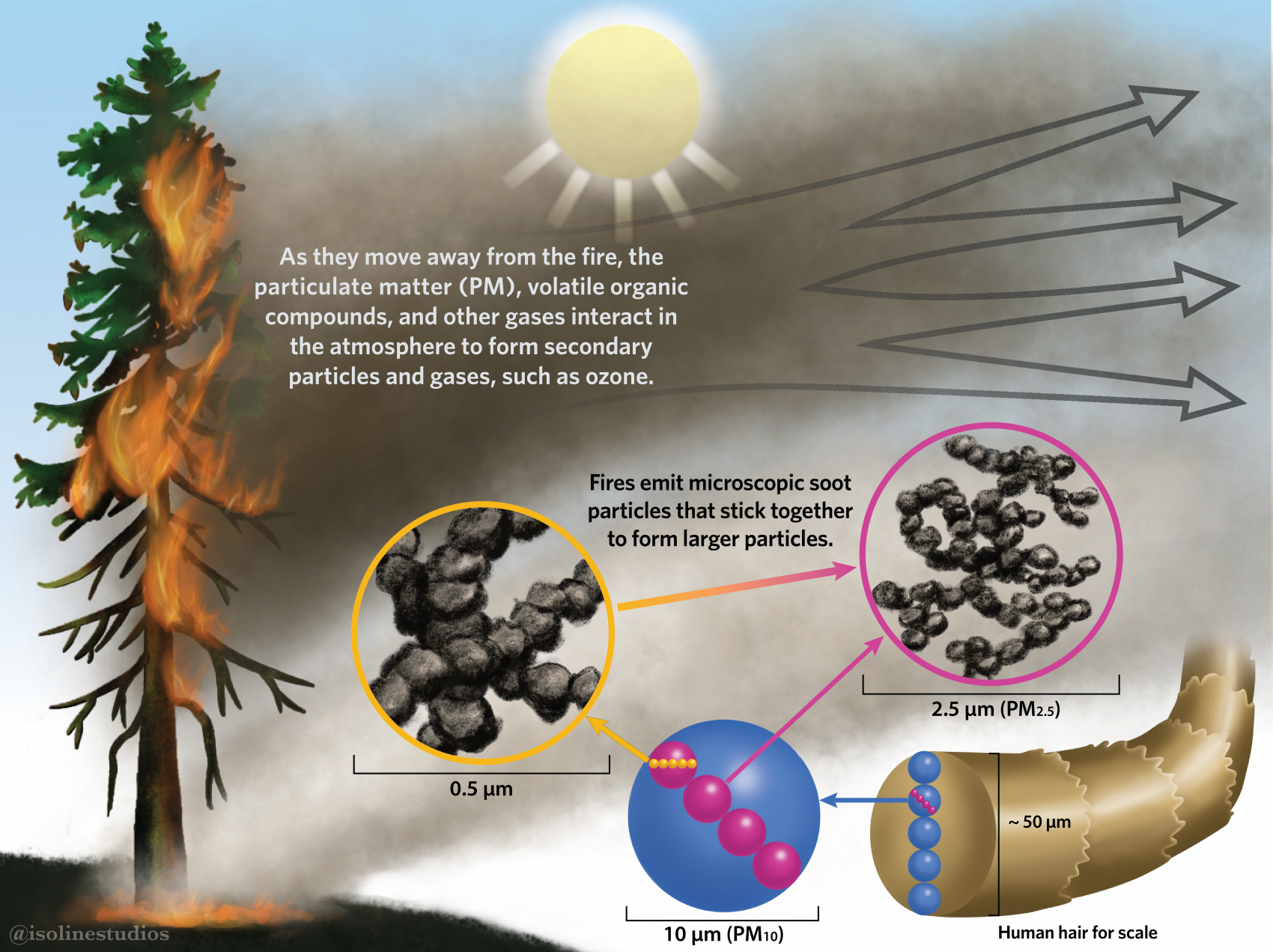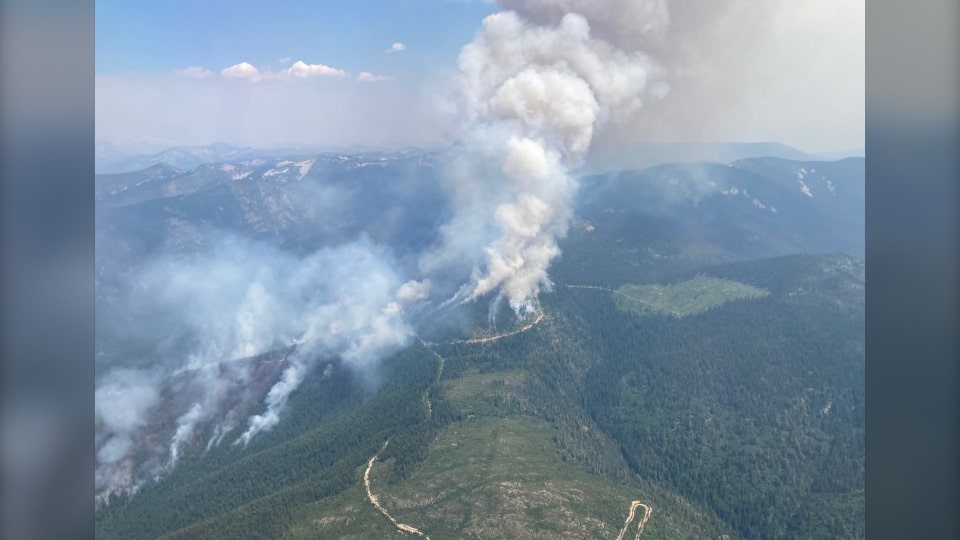
Even though the severe heatwave has passed in the Pacific Northwest, fires caused by the dry weather continue to burn. There are currently at least 67 fires burning in the Northern USA alone, one of which has already destroyed 200,000 acres of land.
It’s not only the wildfires themselves that are causing problems; the smoke caused by the fires is affecting thousands of people. Many regions have issued health warnings about the air quality and health authorities are advising people to stay indoors whenever possible.
I am one of many who wake up in the morning to hazy orange skies. My head hurts, my throat is sore, I’m constantly fatigued. As someone with little experience with wildfires, it came as a surprise for me to learn that wildfire smoke can be hazardous to our health even if we are nowhere near the fire.
“Smoke can travel thousands of miles,” said Andrew Wineke, from the Department of Ecology in Washington State. “And if it mixes down to the surface level, you need to prepare and take precautions to protect yourselves.”
Carried in wildfire smoke is a complex mix of gases and particles, the most hazardous of which is fine particulate matter, PM2.5. This foggy, sick sensation that I’m feeling? That’s because these tiny soot particles are getting deep into my lungs, depriving my blood of oxygen. I’m tired and lightheaded because the air I breathe has been contaminated and my body is feeling the effects.

The symptoms I’m experiencing are all common indicators of smoke exposure, along with coughing and shortness of breath. In extreme cases, people can experience heart palpitations and severe chest pain. Perhaps most worrying is that these particulates can stay in our bodies for years, causing long-term damage to our respiratory systems. This can increase the risks of heart disease and stroke, and make us more susceptible to respiratory illnesses like COVID-19.
Smoke inhalation is a serious risk to many people’s health, especially if they have other health conditions like asthma. So what can we do about it? The Oregon Health Authority released the following recommendations to reduce the health effects of wildfire smoke:
- Pay attention to local air quality reports
- Limit outdoor activity as much as possible
- Keep indoor air as clean as possible using a high-efficiency particulate air (HEPA) filter, and keeping windows and doors closed
- Do not add to indoor pollution by vacuuming, smoking, or burning anything inside
- Drink lots of water to help reduce inflammation
Hazardous weather conditions show no sign of stopping this summer and unfortunately, we’re likely to see more of these kinds of weather events in the future.
“We expect more acres to burn. We expect more smoke,” explained Wineke, as weather patterns caused by climate change become more threatening.

Don’t tell the poor wildland fire fighters protecting your homes.